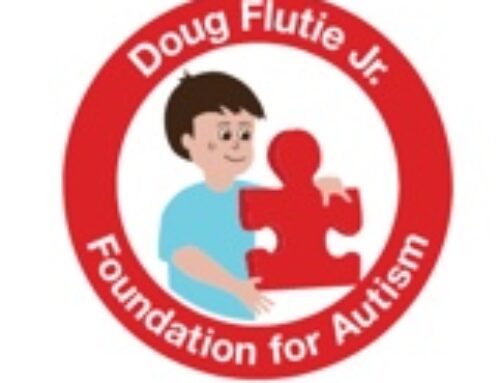Published in Autism Spectrum News, Summer 2017, Vol. 10. No. 1
For families supporting someone diagnosed with an Autism Spectrum Disorder (ASD), navigating the health care system and accessing services can be a significant challenge. In fact, a 2009-2010 National Survey of Children with Special Health Care Needs examining the relationship between a child’s special health needs and (1) access to services, (2) quality of care, and (3) family impact found caregivers of children with autism experience more difficulty accessing services, a lack of shared decision-making and care coordination, and adverse family impact as compared with caregivers of children with other developmental disabilities or mental health issues.
A model of care that addresses these barriers is the patient-centered medical home (PCMH), which is a team-based approach to providing proactive, comprehensive, and well-coordinated care, which includes facilitating access to non-medical social and community-based support services. In the medical home model, primary care providers need to either expand services or enhance capacity to coordinate care with other providers and services in order to manage all
aspects of patient care. One approach to implementing the medical home model is locating multiple providers and services in the same integrated setting. Research shows that providers working together to collectively take responsibility for addressing all aspects of a person’s health and wellness results in increased access to care, enhanced patient experience, improved coordination of services, and more successful health outcomes.
 An integrated approach can work especially well for individuals with ASD who often require more specialized care from multiple providers and often require additional therapeutic and related services. Autism is associated with increased prevalence of certain medical and behavioral health conditions such as seizure disorder, gastrointestinal disorders, depression, anxiety, attention deficit disorder, and obsessive compulsive disorder. In addition, characteristics associated with autism can make it difficult for families to maintain good oral health care. Optimal medical, specialty and dental care for individuals with ASD requires a team approach with specialized knowledge, active communication, effective partnerships, and in many cases behavioral intervention strategies. Implementing the medical home model in an integrated setting promotes increased (1) awareness, (2) access and (3) coordination among providers.
An integrated approach can work especially well for individuals with ASD who often require more specialized care from multiple providers and often require additional therapeutic and related services. Autism is associated with increased prevalence of certain medical and behavioral health conditions such as seizure disorder, gastrointestinal disorders, depression, anxiety, attention deficit disorder, and obsessive compulsive disorder. In addition, characteristics associated with autism can make it difficult for families to maintain good oral health care. Optimal medical, specialty and dental care for individuals with ASD requires a team approach with specialized knowledge, active communication, effective partnerships, and in many cases behavioral intervention strategies. Implementing the medical home model in an integrated setting promotes increased (1) awareness, (2) access and (3) coordination among providers.
Increased awareness
Primary care physicians play an important role in the early recognition of autism. Research shows that early treatment of autism results in better long-term outcomes. Implementing developmental screenings, partnering with parents to discuss behavioral or developmental concerns, and observing for signs of autism during visits all increase the chance of early diagnosis. Increasing primary care provider awareness and expertise in accomplishing these goals is easier and more efficient in an integrated setting with access to support from on-site behavioral health providers. It allows for more efficient consultation as well as opportunities for education and training support.
An integrated setting can also enhance each team member’s awareness of how each role comes together to treat the whole-patient, which is a cornerstone of the PCMH model.
Providers (primary care, specialists, behavioral health and dental) treating a patient with ASD often have specific limited interactions that result in a particular view of that patient’s treatment progress. However, studies show that when multi-discipline providers are onsite together with regular interactions improving the individual practitioner’s awareness and understanding of how their specialty fits in with the whole-person perspective is greatly enhanced.
Lastly, an integrated setting can also enhance awareness of ASD related family and community supports. A diagnosis of autism can be initially overwhelming for families. On-site access to behavioral health support for family counseling can be an important support to help families navigate treatment options and learn more about the diagnosis.
Increased access
Studies have found that integrated settings increase access to services and enhances patient/family satisfaction. Bundling services together at one location can more easily accommodate multiple visits on one day, and offers a structured and familiar environment that can be comforting for many individuals with ASD. An integrated setting increases access to dental services, behavioral health, medical specialties such as neurology and gastroenterology, and therapeutic services such as speech and occupational therapy. During primary care visits providers can use the shared electronic health record to see when patients are due for other services and more easily facilitate scheduling of those appointments.
Integrated settings with multiple providers also allows for warm handoffs, where the primary care doctor can introduce the patient to other providers in real-time. Warm handoffs help increase patient engagement and enhance continuity of care. In fact, warm handoffs result in an 80% return rate for behavioral health visits as opposed to 40% from traditional referrals.
On-site behavioral health services can also increase patient compliance with needed health services, which enhances access to care. Routine medical and dental visits can be extremely stressful for patients with ASD. Deficits in communication skills and behavioral patterns characteristic of people with ASD can significantly complicate routine medical and dental procedures. The sights, sounds, and odors typically present in healthcare environments can be distracting and intolerable, especially for patients with sensory processing issues.
Desensitization is a type of behavioral therapy used by trained professionals to help people overcome fears, phobias, and other anxiety disorders. It teaches relaxation and stress management techniques, while gradually exposing people to distressing situations, so that the person can eventually face the feared situation without fear or anxiety. Research shows that desensitization techniques can successfully reduce anxiety related to medical procedures and increase compliance with treatment. Integrated settings with on-site behavioral health specialists allows for effective implementation of these techniques and monitoring of patient progress (observation during actual medical and dental visits).
Increased coordination
In addition to playing a critical role in the early diagnosis of autism, primary care physicians also support the long-term management of autism, which includes treating associated medical conditions and coordinating care with other specialists involved in the patient’s care. Waiting for specialists reports and delayed communication between providers can negatively affect treatment. In an integrated setting providers share the same electronic health record and have immediate access to accurate and up-to-date information; treatment notes, test results, and
prescribed medications. Communication and care coordination is also greatly enhanced through the use of internal messaging capabilities.
While a shared electronic health record makes developing and tracking multi-disciplinary treatment plans easier to accomplish, an integrated setting allows for the added bonus of in-person case conferencing to supplement written notes. Multi-discipline care coordination helps improve health outcomes and increases patient safety. For example, certain dental treatments may require sedation for patients with ASD or other special preparations to ensure the safe delivery of dental procedures. Consultations with primary care and access to a patient’s full medication history is critical to ensure patient safety.
In conclusion, integrated settings can further advance the medical home model by increasing (1) awareness, (2) access, and (3) coordination of care for patients and families with ASD. Studies have shown that multi-discipline sites enhance interprofessional collaboration and increase provider comfort in treating patient issues, which results in more efficient use of health services and improved health outcomes.
Metro Community Health Centers, Inc. (MCHC), recognized by the National Committee of Quality Assurance as a Level 3 PCMH, is a not-for-profit network of 5 federally qualified health centers (FQHC) providing comprehensive health care services to an underserved and often medically and behaviorally complex patient population throughout New York City. MCHC maintains a special focus on caring for patients with intellectual/developmental disabilities including autism. MCHC offers an array of on-site services including primary care, specialty care, dental care, behavioral health, and rehabilitation services administered under the direction of a diverse team of providers experienced in treating patients with complex needs.
Read the full article in Autism Spectrum News here, http://www.mhnews-autism.org/back_issues/ASN-Summer2017.pdf
References:





